Currency Gallery
Currency |
History
of Nigerian Currency
| Legal Tender
|
Currency Gallery
|
Security
Features
|
Features of Nigerian Currency |
Clean Notes Policy
|
eNaira
Currency in Circulation:
Notes:Coins:
Currency Withdrawn:
Earlier | 1959 | 1965 | 1968 | 1973 | 1977 | 1979 | 1984 | 1991 | 2007| 20221979 Currency Issue
On 2nd July, 1979, new currency notes of three denominations, namely, (N1),
(N5), and (N10)
were introduced. These notes were of the same size i.e., 151 x 78 mm as the
N20 note issued
on the 11th of February, 1977. In order to
facilitate identification, distinctive colours which were similar to those of the
existing banknotes of the various denominations were used. The notes bear the
portraits of three eminent Nigerians, who were declared national heroes on the
1st of October, 1978. The engravings on the back of the notes reflected cultural
aspects of the country.
All the notes were withdrawn in 1984 and reissued in new colours.
| Name |
||
| Twenty Naira Dimension: 151 x 78 mm Material: Paper Withdrawn: 1984 |
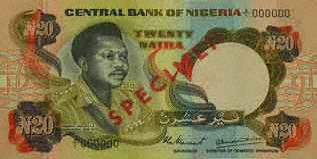 |
|
| Ten Naira Dimension: 151 x 78 mm Material: Paper Withdrawn: 1979 |
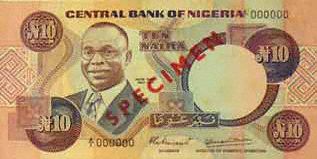 |
|
| Five Naira Dimension: 151 x 78 mm Material: Paper Withdrawn: 1979 |
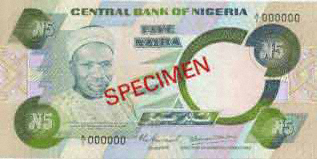 |
|
| One Naira Dimension: 137 x 78 mm Material: Paper Withdrawn: 1979 |
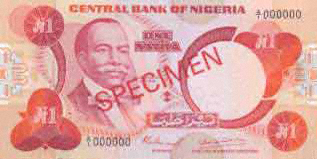 |
|
| Fifty Kobo Dimension: 127 x 78 mm Material: Paper Withdrawn: 1979 |
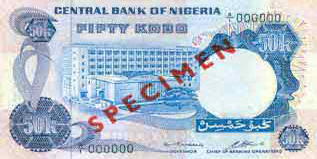 |
|
| Twenty Five Kobo Material: Silver Withdrawn: 1979 Reissued in Bronze in 1991 |
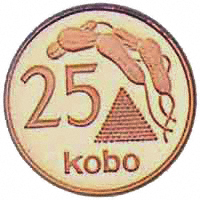 |
|
| Ten Kobo Material: Silver Withdrawn: 1979 Reissued in Bronze in 1991 |
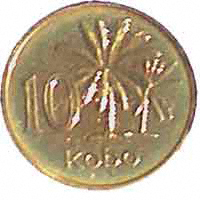 |
|
| Five Kobo Material: Silver Withdrawn: 1991 |
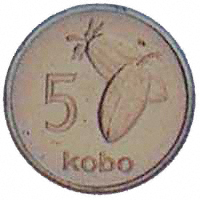 |
|
| One Kobo Material: Bronze Withdrawn: Still in circulation |
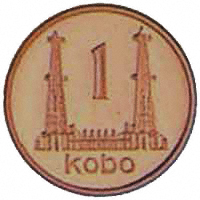 |
|
| Half Kobo Material: Copper |
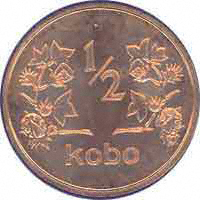 |
|
See frequently asked questions on Currency Management

 Flickr
Flickr Instagram
Instagram LinkedIn
LinkedIn